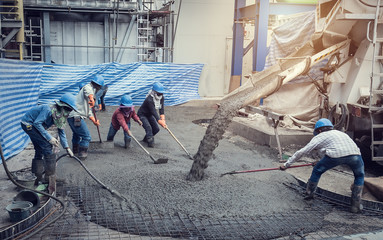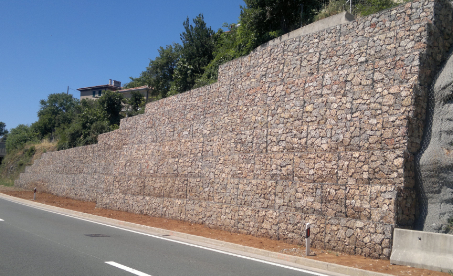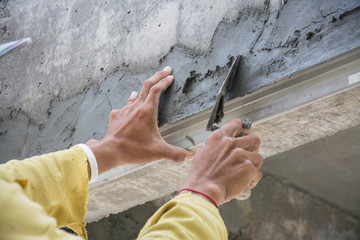Concrete Contractors build structures from concrete, such as foundations, driveways, and slab floors. They work with clients to create a concrete structure that fits their needs and budget while meeting high structural standards.

Concrete Contractors Dallas TX have a wide skillset beyond the job site. They must also be efficient at operating their business, including estimating, scheduling, and accounting.
The site preparation process is a crucial step in commercial concrete construction projects. It involves various activities that help ensure that the building is constructed on a stable foundation and helps prevent issues such as water damage or erosion. It also includes grading and leveling the land, and installing utilities such as water, electricity, and sewage systems.
The first step of the site preparation process is to clear the land of debris and obstacles. This can include removing trees, demolishing existing buildings, and clearing the space for excavation and foundation work. It may also involve earthwork and fill placement. The next step is to test the soil for its ability to support the building. This can be done by evaluating the composition of the soil, and by performing a geotechnical investigation.
Once the ground has been tested, it is important to bring in 4 to 6 inches of excellent compactable base. This will prepare the ground for the concrete, and will eliminate problems such as delays, segregation, and wastage.
Site preparation can be a complex process, but with the right team and the right tools, it can be completed in a timely manner. The key to success is proper planning and communication with the project manager. This will help to avoid any problems, and ensure that the project is completed on time and within budget.
Many concrete contractors choose to outsource the site preparation process, as this can save them both time and money. This can be especially beneficial when working on larger, more complex projects. Outsourcing can also allow you to focus on other aspects of your business, such as accounting, estimating, and bidding.
Formwork
Concrete contractors use formwork to shape and support concrete structures during construction. The process is labour intensive and accounts for a significant amount of the project budget, so it’s important to plan carefully to ensure that the formwork is completed on schedule. The correct choice of formwork system must balance quality, cost and safety.
Depending on the structure type, the temperature of the concrete, and construction methods, different formwork systems are required. The erected formwork should be inspected by a qualified person to verify that it meets the required design. The formwork should also be able to resist the live load of workers and equipment.
The most popular formwork material is timber, which is able to be re-used a number of times. It is lightweight and can be easily cut to suit the shape of a structure. It has good thermal resistance and will not damage the concrete when it is poured. It is also easy to work with and can be nailed without splitting.
Another option is foam formwork, which is assembled on site from insulated concrete forms (ICFs). This type of formwork can reduce the overall building costs and may offer advantages such as increased speed, strength, superior thermal and acoustic insulation, space to run utilities within the EPS layer and an integrated furring strip for cladding finishes.
Formwork can be a complicated process, and many concrete construction managers struggle to keep up with the demand for accurate and timely formwork information. Using traditional 2D processes can result in errors and delays. This is because formwork CAD blocks are disconnected from other concrete construction planning tasks, such as pour planning, quantity takeoffs and lift and formwork drawings. A better approach is to adopt a BIM-based workflow that provides a single source of truth for all formwork related data and information.
Pouring
Concrete contractors are skilled at pouring large quantities of concrete. They can also prepare and mix concrete to the precise strength they need for a particular application. They understand the correct steps to take to ensure that concrete is poured correctly, including minimizing air bubbles and maintaining proper water to cement ratios. They may use specialized concrete mixers or wheel barrows to transfer the mixture. They may also set up a formwork, which is a wood frame that holds the concrete while it sets.
One of the most challenging aspects of concrete work is dealing with weather conditions. Contractors should always check the weather forecast before starting a concrete project and be prepared to stop pouring if heavy rain is predicted. In addition, they should consider placing downspouts around the site to help funnel rainwater away from the new concrete. If the pour must continue, it’s important to tent the concrete with tarps to prevent rainwater from mixing with semi-solid concrete.
The best time of day to pour concrete is early morning when the concrete will be cooler. During the afternoon, the temperature can rise and cause concrete to shrink or crack prematurely. In addition, a hot concrete can be difficult to work with and can increase the likelihood of a mess-up during the finishing process.
Pouring concrete can be dangerous, and it is not a task that should be attempted by inexperienced individuals. It requires a high level of concentration, and mistakes can be costly. A professional concrete contractor will be able to produce a finished product that is strong, durable, and aesthetically pleasing. They will also know how to embed designs into the concrete before it hardens.
Screeding
The process of flattening and leveling the top layer of a poured material, such as concrete, is called screeding. A concrete contractor must perform this step to help ensure that a subsequent upper layer, such as floor covering or a slab of pavers, rests on a smooth, flat layer. Screeding can be performed with a variety of tools, including a hand or power screed.
The type of screed used will depend on the specific project and its use. Some projects, such as commercial and industrial floors, must meet stringent F-number tolerances, which require a precise, finely graded surface that is free of lumps or puddles. For these projects, a laser screed may be necessary to achieve the required level of flatness.
Hand screeds are typically used on smaller jobs, requiring only one person to operate. The user uses a long handle to push the concrete screed across the floor in a smooth, continuous motion, removing any high spots or gaps. A quality hand screed is lightweight and ergonomically designed to minimize fatigue.
Roller screeds are another popular choice for concrete contractors, thanks to their minimal setup time and low learning curve. They are also well-suited for a wide range of pours, thanks to their adjustable width and depth settings. Roller screeds are often made of aluminum, which improves durability and reduces damage from impact.
A power concrete screed features a gasoline motor that helps to smooth and vibrate the concrete as it is being flattened. It is typically attached to a telescoping boom that extends up to 20 feet. These machines are known for their ease of use and reduced labor costs, but they can be challenging to operate if the operator is inexperienced.
Maintenance
Concrete is a key building material that helps to build the walls, floors and more of the buildings we live and work in. It’s critical that this construction material is poured and laid well from the beginning to ensure that the building is strong and durable from its foundation up. This is where commercial concrete contractors come in to help. They have the tools and experience to ensure that the concrete is poured correctly so that it is strong from the start.
A quality commercial concrete contractor will be able to work within the parameters of a client’s budget and timeline. They should also be able to provide references from previous clients as well as reviews and ratings available online. If a potential concrete contractor seems reluctant to give you these details or seem standoffish in any way, this is a good indication that they may not be the right fit for your project.
Another important aspect of a quality commercial concrete contractor is that they should be bonded and insured. This will protect you if they don’t finish the job on time or within budget or if there is damage to your property during construction. In addition, they should be able to show proof that they have the proper licensing and certifications to work with concrete.
Finally, a quality commercial concrete contractor will have employees that are happy and motivated to work hard. They will pay their employees competitive salaries and benefits so that they are invested in the company and can perform better on the jobsite. This will help to reduce turnover rates and improve productivity. Additionally, they will have a fleet of specialized equipment to get the job done quickly and efficiently.


